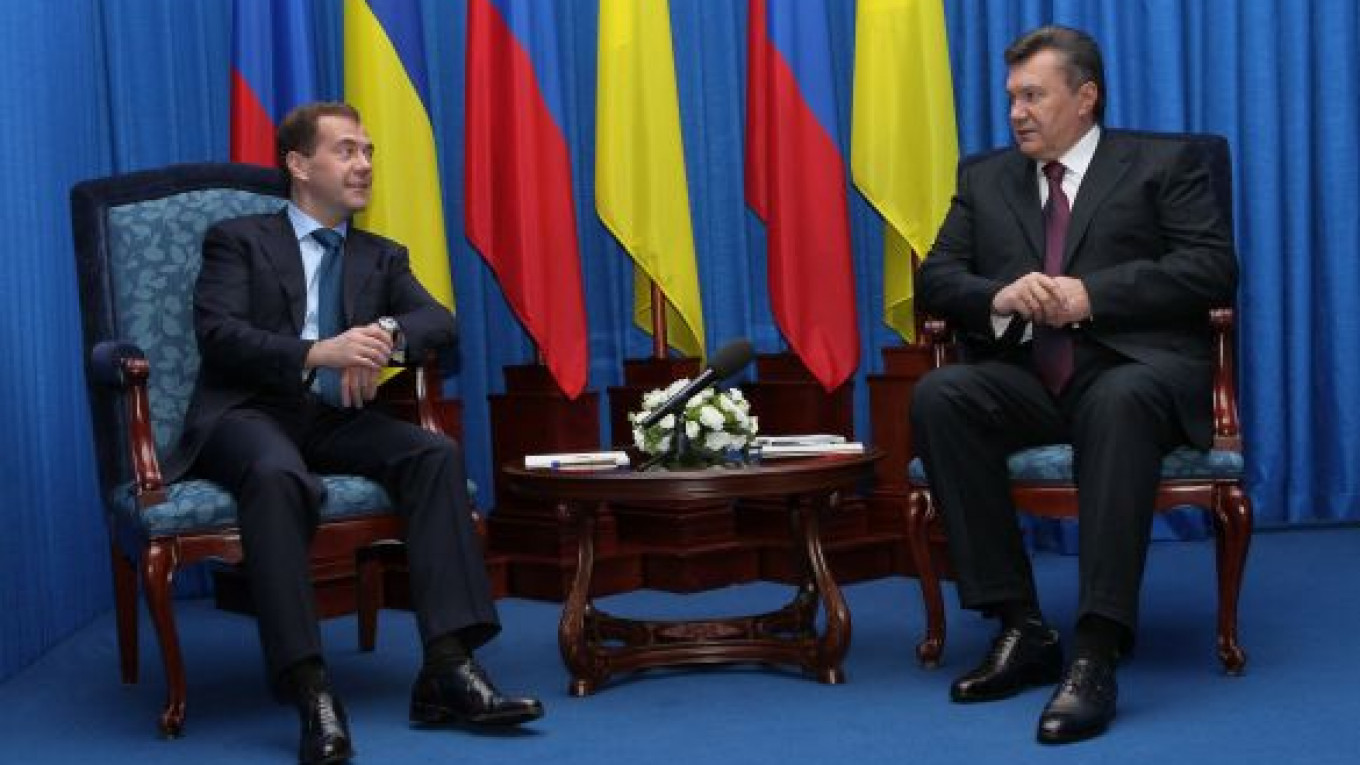BRUSSELS — The European Union has postponed a meeting this week with Ukrainian President Viktor Yanukovych because of concerns about the trial and jailing of former Prime Minister Yulia Tymoshenko.
"The meeting is postponed to a later occasion when the conditions will be more conducive to making progress in bilateral relations," said a spokeswoman for EU foreign policy chief Catherine Ashton.
Yanukovych had been due to meet European Commission President Jose Manuel Barroso and the president of the EU council of member states, Herman Van Rompuy, on Thursday.
His meeting with his Russian counterpart Dmitry Medvedev, by contrast, proceeded as planned on Tuesday, though the discussion, which focused on economic cooperation, ended without any breakthrough agreements.
Ashton's spokeswoman said the step was taken to underscore the need for Ukraine "to make progress in ensuring the rule of law and independence of the judiciary."
Ukraine jailed Tymoshenko last week for seven years for abuse of office in a trial that the United States and European Union say was politically motivated.
The state security service opened a new criminal case against her on Thursday alleging her involvement in a "criminal conspiracy" 15 years ago to embezzle state funds through gas purchases from Russia.
The European Union has criticized the handling of the case and said it could hurt relations. Last week some members of the European Parliament called for a suspension of talks on a wide-ranging pact with Kiev on closer trade and political ties, which had been expected to be concluded this year.
The leaders of three central European countries belonging to the European Union — the Czech Republic, Hungary and Poland — said Friday that they could not imagine ratifying the agreement while Tymoshenko was in jail.
Ashton said last week that the European Union should keep negotiating the trade pact but not sign it unless Kiev showed a commitment to shared values.
The creation of a free-trade zone with the EU, a key part of an association agreement between them, holds huge opportunities for Ukraine, an exporter of steel, chemicals and grain, and for the industrialists who are important backers of Yanukovych.
On Monday, Yanukovych indicated that he was not ready to bend to pressure over Tymoshenko and denied the charges of political meddling in the trial.
"It is not a question of whether Ukraine or Europe likes the sentence or not. It is a question of the rule of law," he said. "There is a court that makes decisions that must be respected."
Referring to the meeting that had been set for Thursday, Yanukovych told foreign news organizations that "I am not going to beg anyone. If there is a need to meet someone, I am ready. If not, then I'll just continue on my way. We [and the EU] are partners, and we have mutual obligations."
Referring specifically to the association agreement being prepared between Ukraine and the EU, he said: "If Europe is not ready for this for whatever reason, or if Ukraine is not ready, then the decision can be made later."
A Message from The Moscow Times:
Dear readers,
We are facing unprecedented challenges. Russia's Prosecutor General's Office has designated The Moscow Times as an "undesirable" organization, criminalizing our work and putting our staff at risk of prosecution. This follows our earlier unjust labeling as a "foreign agent."
These actions are direct attempts to silence independent journalism in Russia. The authorities claim our work "discredits the decisions of the Russian leadership." We see things differently: we strive to provide accurate, unbiased reporting on Russia.
We, the journalists of The Moscow Times, refuse to be silenced. But to continue our work, we need your help.
Your support, no matter how small, makes a world of difference. If you can, please support us monthly starting from just $2. It's quick to set up, and every contribution makes a significant impact.
By supporting The Moscow Times, you're defending open, independent journalism in the face of repression. Thank you for standing with us.
Remind me later.






